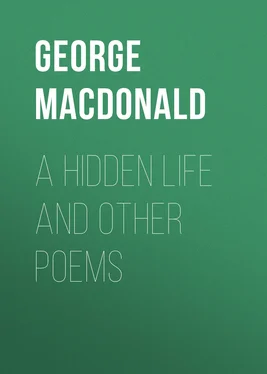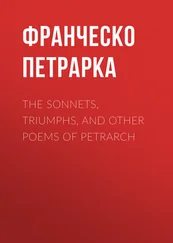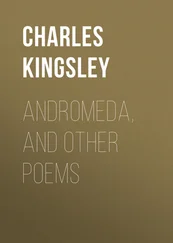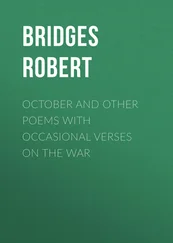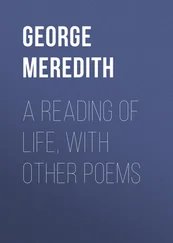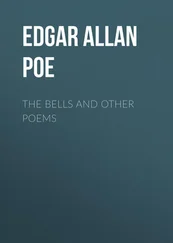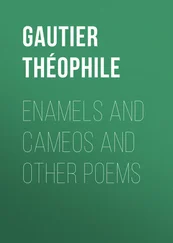George MacDonald - A Hidden Life and Other Poems
Здесь есть возможность читать онлайн «George MacDonald - A Hidden Life and Other Poems» — ознакомительный отрывок электронной книги совершенно бесплатно, а после прочтения отрывка купить полную версию. В некоторых случаях можно слушать аудио, скачать через торрент в формате fb2 и присутствует краткое содержание. Жанр: foreign_prose, literature_19, foreign_antique, на английском языке. Описание произведения, (предисловие) а так же отзывы посетителей доступны на портале библиотеки ЛибКат.
- Название:A Hidden Life and Other Poems
- Автор:
- Жанр:
- Год:неизвестен
- ISBN:нет данных
- Рейтинг книги:4 / 5. Голосов: 1
-
Избранное:Добавить в избранное
- Отзывы:
-
Ваша оценка:
- 80
- 1
- 2
- 3
- 4
- 5
A Hidden Life and Other Poems: краткое содержание, описание и аннотация
Предлагаем к чтению аннотацию, описание, краткое содержание или предисловие (зависит от того, что написал сам автор книги «A Hidden Life and Other Poems»). Если вы не нашли необходимую информацию о книге — напишите в комментариях, мы постараемся отыскать её.
A Hidden Life and Other Poems — читать онлайн ознакомительный отрывок
Ниже представлен текст книги, разбитый по страницам. Система сохранения места последней прочитанной страницы, позволяет с удобством читать онлайн бесплатно книгу «A Hidden Life and Other Poems», без необходимости каждый раз заново искать на чём Вы остановились. Поставьте закладку, и сможете в любой момент перейти на страницу, на которой закончили чтение.
Интервал:
Закладка:
Ah God! we need the winter as the spring;
And thy poor children, knowing thy great heart,
And that thou bearest thy large share of grief,
Because thou lovest goodness more than joy
In them thou lovest,—so dost let them grieve,
Will cease to vex thee with their peevish cries,
Will look and smile, though they be sorrowful;
And not the less pray for thy help, when pain
Is overstrong, coming to thee for rest.
One day we praise thee for, without, the pain.
One night, as oft, he lay and could not sleep.
His soul was like an empty darkened room,
Through which strange pictures pass from the outer world;
While regnant will lay passive and looked on.
But the eye-tube through which the shadows came
Was turned towards the past. One after one
Arose old scenes, old sorrows, old delights.
Ah God! how sad are all things that grow old;
Even the rose-leaves have a mournful scent,
And old brown letters are more sad than graves;
Old kisses lie about the founts of tears,
Like autumn leaves around the winter wells;
And yet they cannot die. A smile once smiled
Is to eternity a smile—no less;
And that which smiles and kisses, liveth still;
And thou canst do great wonders, Wonderful!
At length, as ever in such vision-hours,
Came the bright maiden, riding the great horse.
And then at once the will sprang up awake,
And, like a necromantic sage, forbade
What came unbidden to depart at will.
So on that form he rested his sad thoughts,
Till he began to wonder what her lot;
How she had fared in spinning history
Into a psyche-cradle, where to die;
And then emerge—what butterfly? pure white,
With silver dust of feathers on its wings?
Or that dull red, seared with its ebon spots?
And then he thought: "I know some women fail,
And cease to be so very beautiful.
And I have heard men rave of certain eyes,
In which I could not rest a moment's space."
Straightway the fount of possibilities
Began to gurgle, under, in his soul.
Anon the lava-stream burst forth amain,
And glowed, and scorched, and blasted as it flowed.
For purest souls sometimes have direst fears,
In ghost-hours when the shadow of the earth
Is cast on half her children, from the sun
Who is afar and busy with the rest.
"If my high lady be but only such
As some men say of women—very pure
When dressed in white, and shining in men's eyes,
And with the wavings of great unborn wings
Around them in the aether of the souls,
Felt at the root where senses meet in one
Like dim-remembered airs and rhymes and hues;
But when alone, at best a common thing,
With earthward thoughts, and feet that are of earth!
Ah no—it cannot be! She is of God.
But then, fair things may perish; higher life
Gives deeper death; fair gifts make fouler faults:
Women themselves—I dare not think the rest.
And then they say that in her London world,
They have other laws and judgments than in ours."
And so the thoughts walked up and down his soul,
And found at last a spot wherein to rest,
Building a resolution for the day.
But next day, and the next, he was too worn
With the unrest of this chaotic night—
As if a man had sprung to life before
The spirit of God moved on the waters' face,
And made his dwelling ready, who in pain,
Himself untuned, groaned for a harmony,
For order and for law around his life—
Too tired he was to do as he had planned.
But on the next, a genial south-born wind
Waved the blue air beneath the golden sun,
Bringing glad news of summer from the south.
Into his little room the bright rays shone,
And, darting through the busy blazing fire,
Turning it ghostly pale, slew it almost;
As the great sunshine of the further life
Quenches the glow of this, and giveth death.
He had lain gazing at the wondrous strife
And strange commingling of the sun and fire,
Like spiritual and vital energies,
Whereof the one doth bear the other first,
And then destroys it for a better birth;
And now he rose to help the failing fire,
Because the sunshine came not near enough
To do for both. And then he clothed himself,
And sat him down betwixt the sun and fire,
And got him ink and paper, and began
And wrote with earnest dying heart as thus.
"Lady, I owe thee much. Nay, do not look
To find my name; for though I write it here,
I date as from the churchyard, where I lie
Whilst thou art reading; and thou know'st me not.
I dare to write, because I am crowned by death
Thy equal. If my boldness should offend,
I, pure in my intent, hide with the ghosts,
Where thou wilt never meet me, until thou
Knowest that death, like God, doth make of one.
"But pardon, lady. Ere I had begun,
My thoughts moved towards thee with a gentle flow
That bore a depth of waters. When I took
My pen to write, they rushed into a gulf,
Precipitate and foamy. Can it be,
That death who humbles all hath made me proud?
Lady, thy loveliness hath walked my brain,
As if I were thy heritage in sooth,
Bequeathed from sires beyond all story's reach.
For I have loved thee from afar, and long;
Joyous in having seen what lifted me,
By very power to see, above myself.
Thy beauty hath made beautiful my life;
Thy virtue made mine strong to be itself.
Thy form hath put on every changing dress
Of name, and circumstance, and history,
That so the life, dumb in the wondrous page
Recording woman's glory, might come forth
And be the living fact to longing eyes—
Thou, thou essential womanhood to me;
Afar as angels or the sainted dead,
Yet near as loveliness can haunt a man,
And taking any shape for every need.
"Years, many years, have passed since the first time,
Which was the last, I saw thee. What have they
Made or unmade in thee? I ask myself.
O lovely in my memory! art thou
As lovely in thyself? Thy features then
Said what God made thee; art thou such indeed?
Forgive my boldness, lady; I am dead;
And dead men may cry loud, they make no noise.
"I have a prayer to make thee—hear the dead.
Lady, for God's sake be as beautiful
As that white form that dwelleth in my heart;
Yea, better still, as that ideal Pure
That waketh in thee, when thou prayest God,
Or helpest thy poor neighbour. For myself
I pray. For if I die and find that she,
My woman-glory, lives in common air,
Is not so very radiant after all,
My sad face will afflict the calm-eyed ghosts,
Not used to see such rooted sadness there,
At least in fields where I may hope to walk
And find good company. Upon my knees
I could implore thee—justify my faith
In womanhood's white-handed nobleness,
And thee, its revelation unto me.
"But I bethink me, lady. If thou turn
Thy thoughts upon thyself, for the great sake
Of purity and conscious whiteness' self,
Thou wilt but half succeed. The other half
Is to forget the first, and all thyself,
Quenching thy moonlight in the blaze of day;
Turning thy being full unto thy God;
Where shouldst thou quite forget the name of Truth,
Yet thou wouldst be a pure, twice holy child,
(Twice born of God, once of thy own pure will
Arising at the calling Father's voice,)
Doing the right with sweet unconsciousness;
Having God in thee, a completer soul,
Be sure, than thou alone; thou not the less
Complete in choice, and individual life,
Since that which sayeth I , doth call him Sire.
"Lady, I die—the Father holds me up.
It is not much to thee that I should die;
(How should it be? for thou hast never looked
Deep in my eyes, as I once looked in thine)
But it is much that He doth hold me up.
Интервал:
Закладка:
Похожие книги на «A Hidden Life and Other Poems»
Представляем Вашему вниманию похожие книги на «A Hidden Life and Other Poems» списком для выбора. Мы отобрали схожую по названию и смыслу литературу в надежде предоставить читателям больше вариантов отыскать новые, интересные, ещё непрочитанные произведения.
Обсуждение, отзывы о книге «A Hidden Life and Other Poems» и просто собственные мнения читателей. Оставьте ваши комментарии, напишите, что Вы думаете о произведении, его смысле или главных героях. Укажите что конкретно понравилось, а что нет, и почему Вы так считаете.
